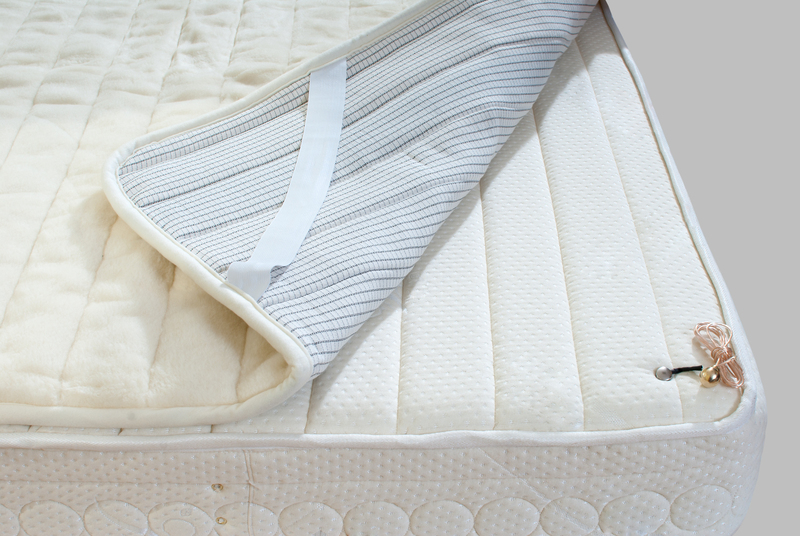Optimal Mattress Replacement Timing
Posted on 04/08/2024
When was the last time you thought about replacing your mattress? Often overlooked, the right mattress contributes significantly to your overall health and well-being. If you're waking up feeling sore or not as rested as you'd like, it might be time to consider whether your mattress is past its prime. This article delves into the optimal mattress replacement timing to help you make an informed decision.
Understanding Mattress Longevity
How long a mattress lasts can depend on a variety of factors including material, quality, and level of usage. However, a general rule of thumb is to replace your mattress every 7-10 years. Over time, mattresses can accumulate dust mites, allergens, and other unwanted particles that can affect your sleep quality and health.

Signs You Need a New Mattress
Before reaching the decade mark, there might be certain indications that your mattress is no longer serving its purpose. Here are some signs to look for:
1. Sagging: If your mattress has visible dips or sags, it's a tell-tale sign that it's time for a replacement.
2. Lumps: Uneven surfaces and lumps can cause poor spine alignment leading to discomfort.
3. Waking Up Sore: Consistent back pain or body aches in the morning can signify that your mattress is failing to provide adequate support.
4. Allergies: Increased allergy symptoms or asthma attacks could indicate an influx of allergens in your old mattress.
5. Poor Sleep Quality: If you find yourself tossing and turning more frequently, your mattress could be the culprit.
Factors Influencing Mattress Lifespan
1. Material Quality: Mattresses made from high-quality foam, latex, or hybrid materials tend to last longer.
2. Maintenance: Regular cleaning and rotating can extend the mattress's life.
3. Sleeper's Weight: Heavier individuals may wear out a mattress more quickly compared to lighter sleepers.
4. Sleep Habits: If you frequently sit on the same spot or allow kids to jump on the bed, the mattress may wear out faster.
Different Types of Mattresses
1. Innerspring Mattresses: Generally last around 7-8 years.
2. Memory Foam Mattresses: Can last up to 10-15 years with proper care.
3. Latex Mattresses: Known for their durability, they can last up to 15 years or more.
4. Hybrid Mattresses: Combining innerspring and foam, these usually last around 7-10 years.
Maintenance Tips to Extend Mattress Life
To make sure you get the most out of your mattress, follow these tips:
1. Rotate Regularly: Rotate your mattress 180 degrees every 3 to 6 months.
2. Use a Mattress Protector: This can guard against spills, allergens, and dust mites.
3. Proper Support: Ensure your bed frame offers adequate support for your type of mattress.
4. Avoid Jumping: Discourage jumping or heavy impacts on the bed.
5. Keep Clean: Vacuum your mattress and use cleaning solutions for any spills to maintain hygiene.
Pros and Cons of Regular Mattress Replacement
1. Pros:
- Improved Comfort: A new mattress can offer better support and enhance sleep quality.
- Hygiene: Reduces exposure to allergens and dust mites.
- Health Benefits: Reduces back pain and other aches through improved support.
2. Cons:
- Cost: High-quality mattresses can be expensive.
- Adjustment Period: You may need time to adjust to a new mattress.
- Environmental Impact: Frequent replacements contribute to waste unless recycled properly.

Takeaways
1. Regular Assessment: Frequently evaluate the condition of your mattress to catch signs of wear early.
2. Prioritize Quality: Investing in a high-quality mattress can improve longevity.
3. Follow Maintenance Tips: Regular care can extend your mattress's lifespan, delaying the need for replacement.
4. Monitor Health Symptoms: Note any increased allergy symptoms or body pain, which could signal that a new mattress is needed.
Conclusion
Replacing your mattress might not be high on your list of priorities, but it can make a substantial difference to your overall well-being. Keep an eye out for signs of wear and factor in your mattress type and maintenance routines to determine the optimal time for replacement. While some upfront cost is involved, the benefits you reap in terms of health, comfort, and hygiene are invaluable. Make mattress replacement a timely practice, and you will enjoy better sleep and an enhanced quality of life.
Latest Posts
AGA Cookers vs. Rayburn Cookers
Choosing the Best Carpet for Your Home
Eliminating Grease Stains on Clothes





